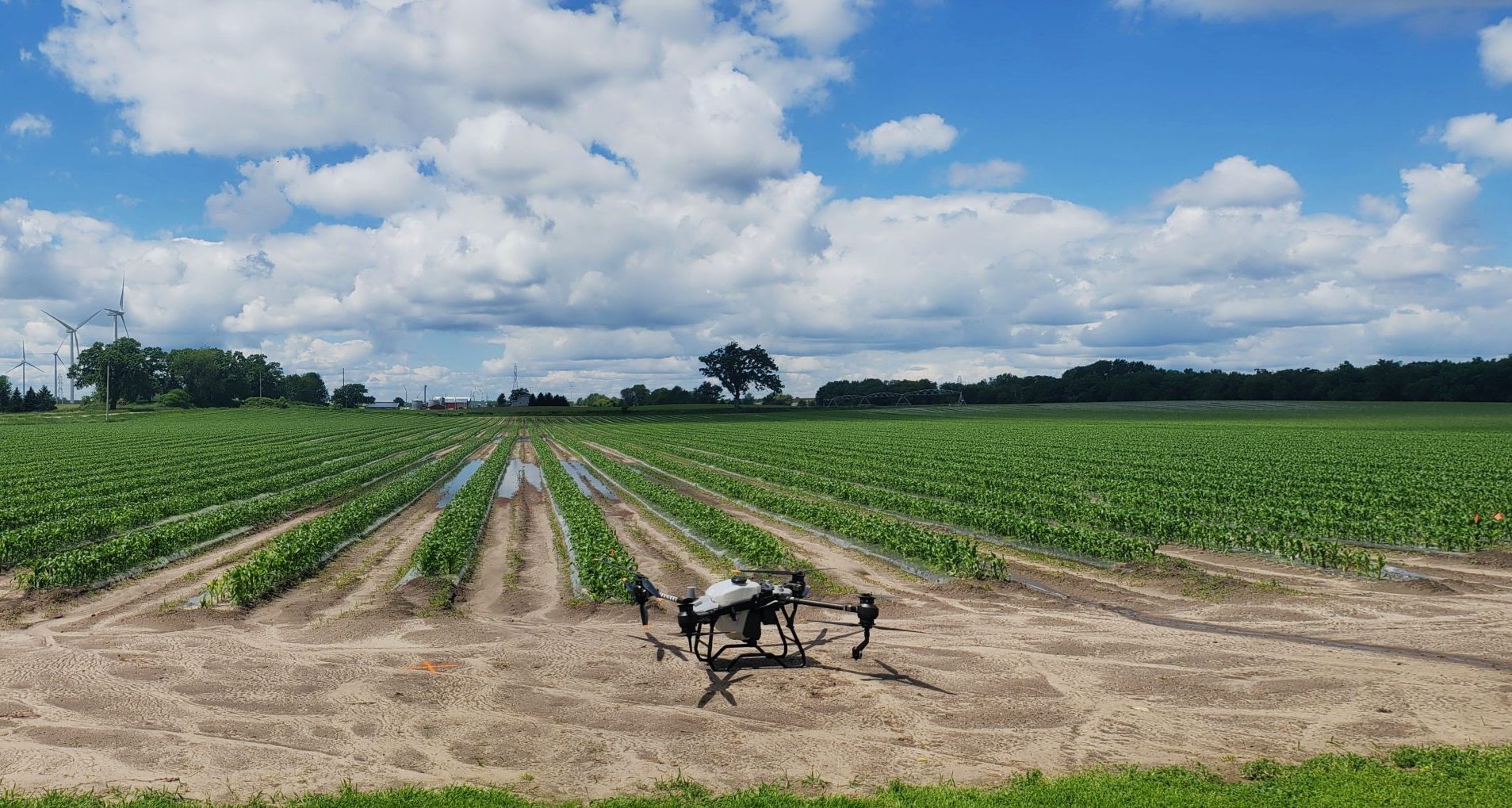
Precision Aerial Spraying
Serving farms across Wisconsin, we bring dependable, flexible, and scalable spraying solutions right to your field!
Aerial Spraying
Boost your farm’s productivity with precision drone spraying—the safer, more cost-effective alternative to traditional crop dusters and ground rigs. Our agricultural drones are built for the unique challenges of Wisconsin farming, from wet spring fields to tight planting schedules.
Why Wisconsin Farmers Trust Our Drone Spraying Services:
- Lower Input Costs – Cut back on fuel, labor, and equipment wear.
- Superior Field Access – Easily spray muddy fields or areas unreachable by tractor or plane.
- Protect Your Crops – No more trampling or compacting soil with repeated passes.
- Enhanced Safety – Keep your team safe and avoid the risks of piloted aircraft.
- Dependable Backup Support – Equipment failure or long co-op wait? We’ll handle it before time runs out.
- Precision and Efficiency: Highly accurate application minimizes chemical waste and reduces environmental impact.
- Hassle Free: Relax and focus on what you do best—we’ll take care of the spraying.
Our drones are ideal for spraying corn, soybeans, alfalfa, wheat, and other Wisconsin crops—delivering precise coverage that meets local agronomic standards.
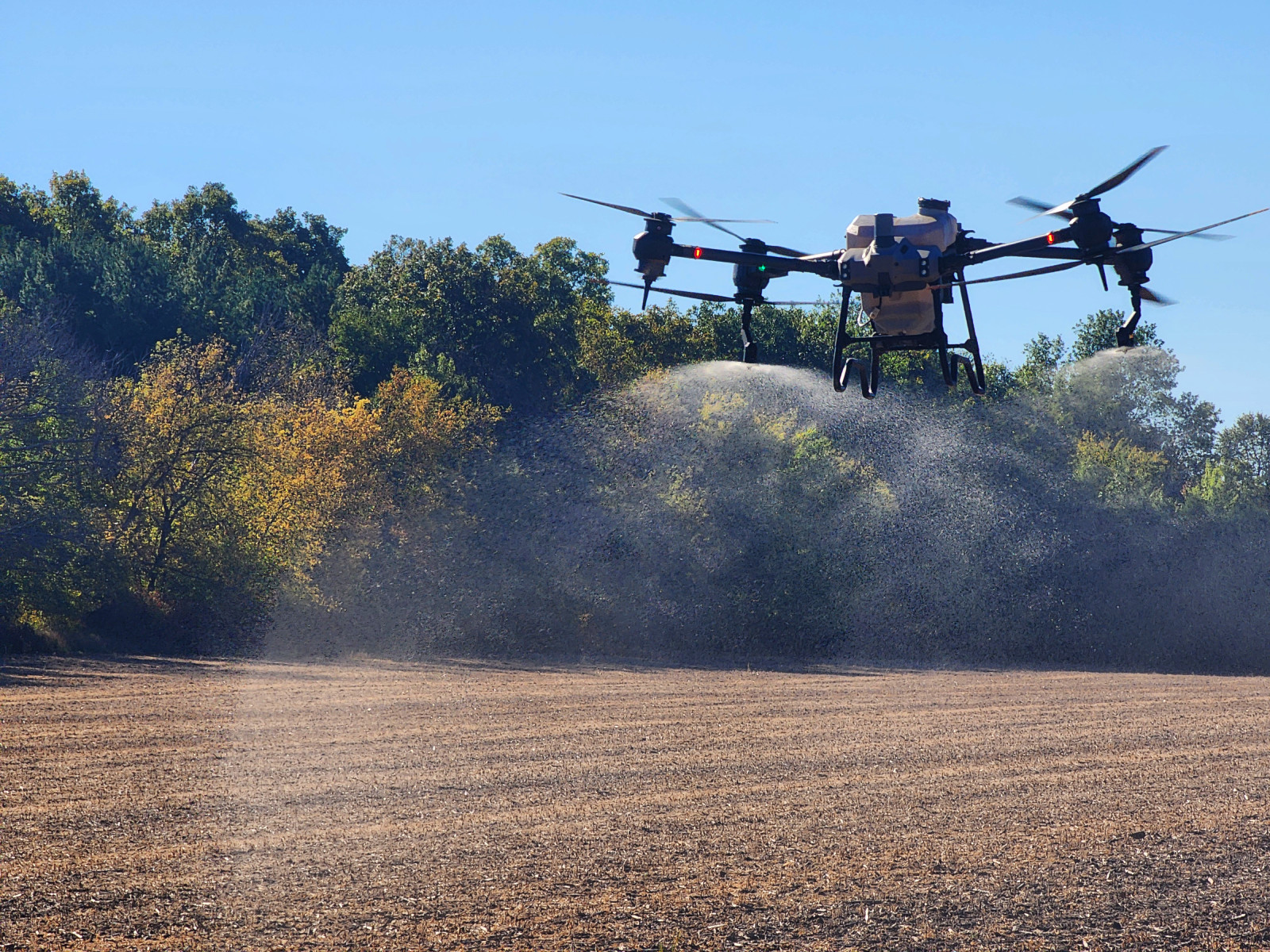
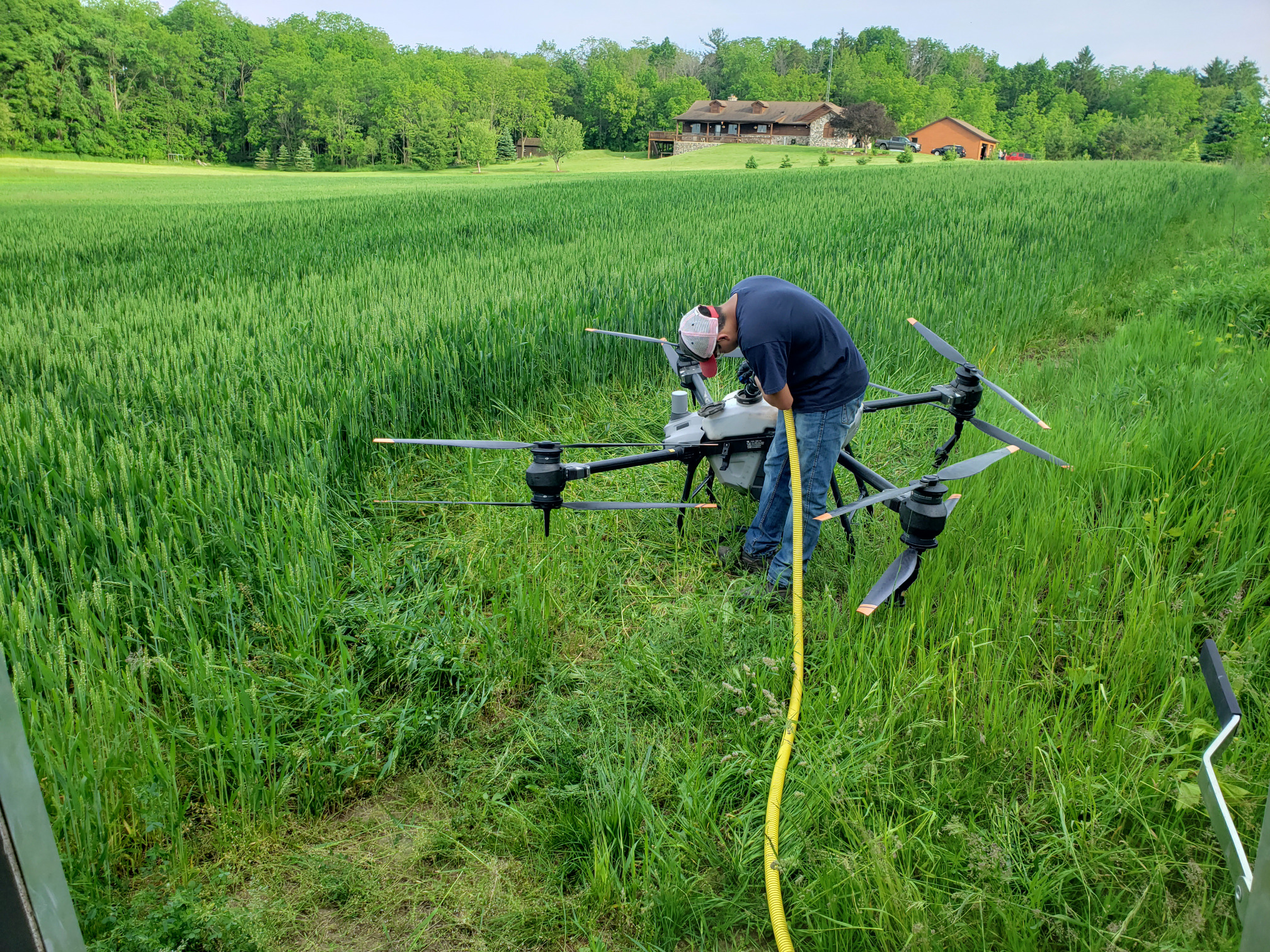
Fungicides
Fungicide applications are a critical component of a comprehensive crop protection strategy for corn, soybeans, and wheat. In Wisconsin and throughout the Midwest, timely fungicide use helps control disease, protect plant health, and significantly improve yield potential.
At Penguin Drones, we offer precision drone spraying for efficient and accurate fungicide application—tailored to your crop stage and disease pressure. Ideal for pairing with foliar feeding applications to minimize the cost of additional flights and maximize efficiency.
Trusted products like Headline®, Delaro® Complete, Miravis® Neo, and Stratego® YLD help protect your corn, soybean, and wheat crops from yield-robbing diseases.
Cover Crop
Our drone application services are perfect for broadcasting cover crop seed over standing corn, soybeans, or fields that are difficult to access with traditional equipment due to shrubs, uneven terrain, or other physical obstacles—helping you improve soil health and erosion control.
Seeding cover crops before harvest allows crop residue—such as leaves and stalks left by the combine—to act as a natural mulch, helping to protect the seed and retain soil moisture for improved germination.
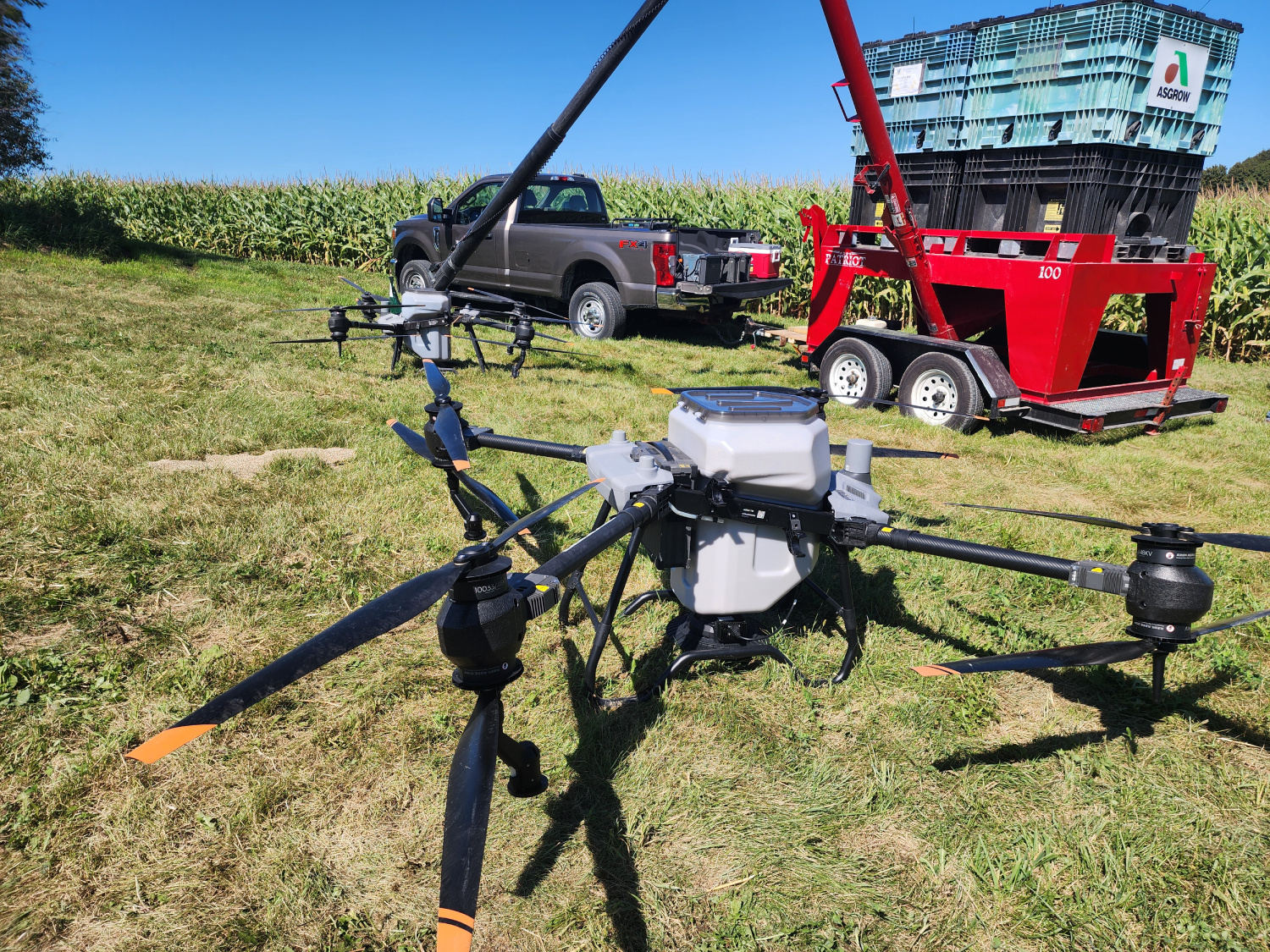
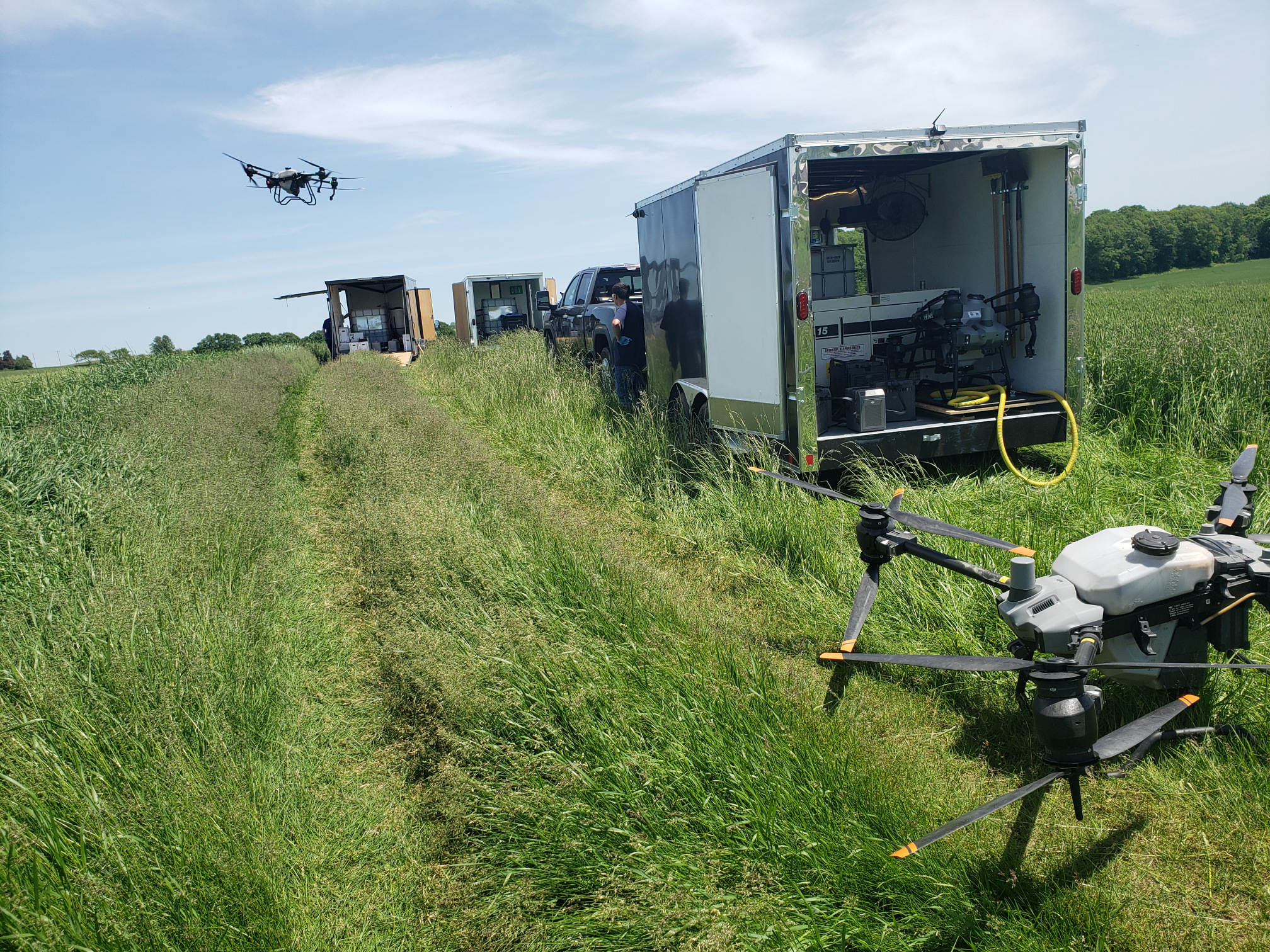
Provide Nutrients
Support crop health and maximize yield potential with targeted foliar feeding. By delivering essential nutrients directly through the leaves, foliar applications strengthen plant growth, enhance stress resistance, and create a competitive canopy that suppresses weed development. A smart addition to your fungicide pass—reduces the need for separate flights and keeps application costs down.
Other Natural Resources
Trees need love too! We apply BTK to tree canopies in the spring to effectively control spongy moth populations and prevent widespread defoliation. Our Btk product is organically certified and safe for use around humans, pets, and wildlife, making it an environmentally responsible solution for spongy moth (aka gypsy moth) and other pests such as tent caterpillars, bagworm, and linden looper.
After a timber harvest, preparing the land for successful tree replanting requires careful management of residual vegetation and competition. Our forest burndown service uses aerial herbicide application to efficiently eliminate regrowth, brush, and invasive species—creating ideal conditions for reforestation.
Invasive and aggressive vegetation can quickly overtake Wisconsin’s marshes, wetlands, and shorelines—blocking waterways, degrading wildlife habitat, and reducing the natural beauty and function of aquatic ecosystems. Our specialized aerial and aquatic spraying services target these problem plants to restore balance and improve access to critical water bodies. We help manage and reduce the spread of Wisconsin’s most problematic wetland and aquatic plant species, including: Phragmites, Cattails, Reed Canary Grass, Purple Loosestrife, and Eurasian Watermilfoil.

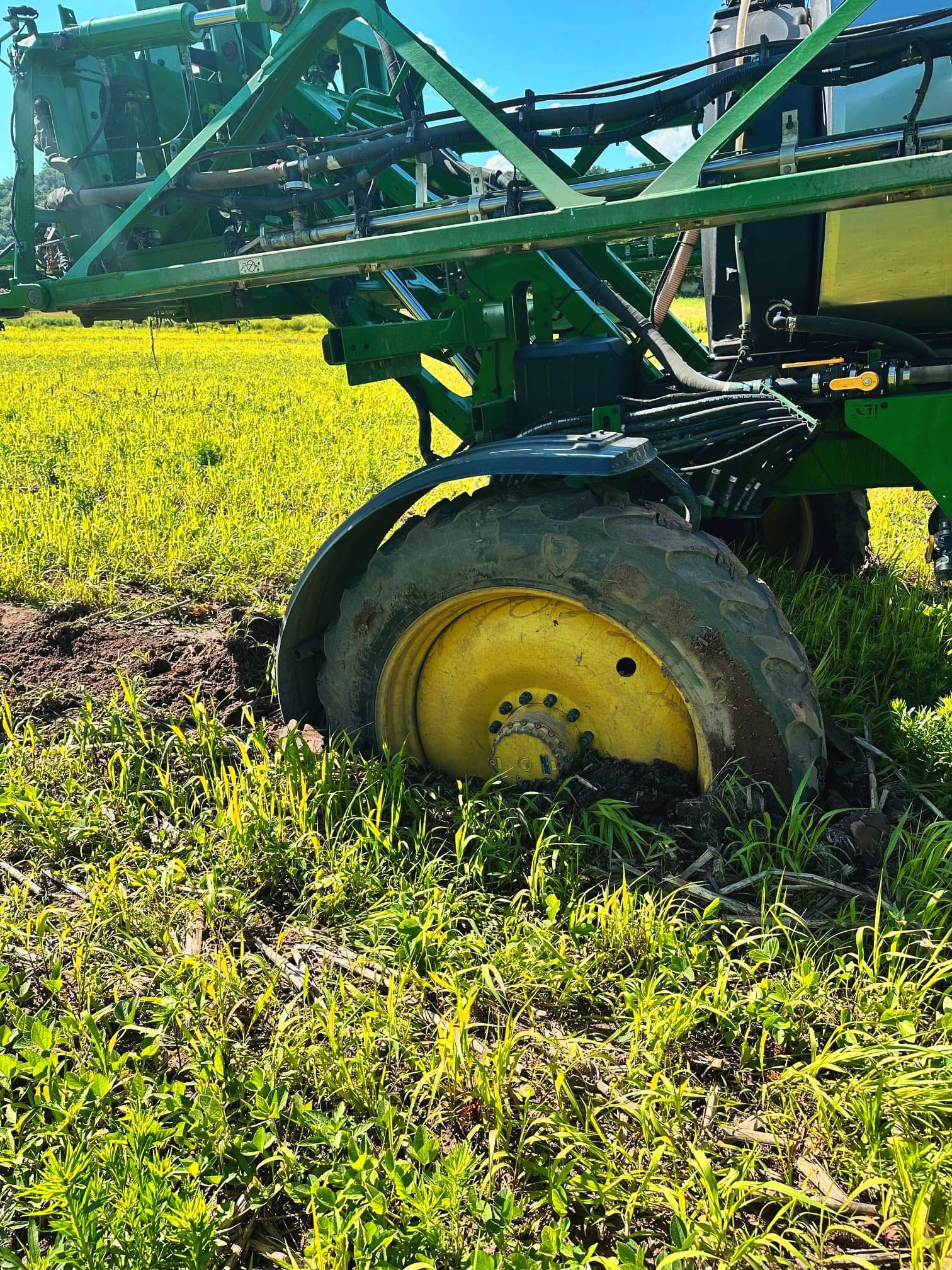
Too much rain?
Not a problem! We won’t be driving 40,000lbs across your muddy field.
Let’s work together on your
next application
Contact us to discuss your next application and how we can help deliver the service that you need.